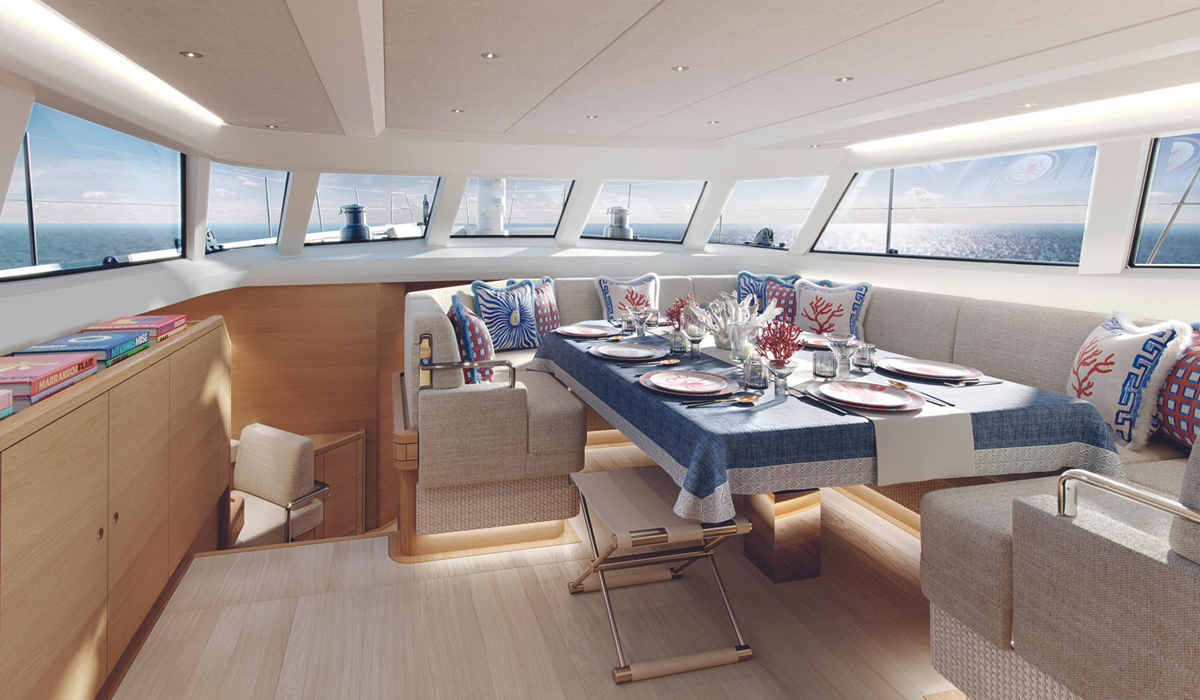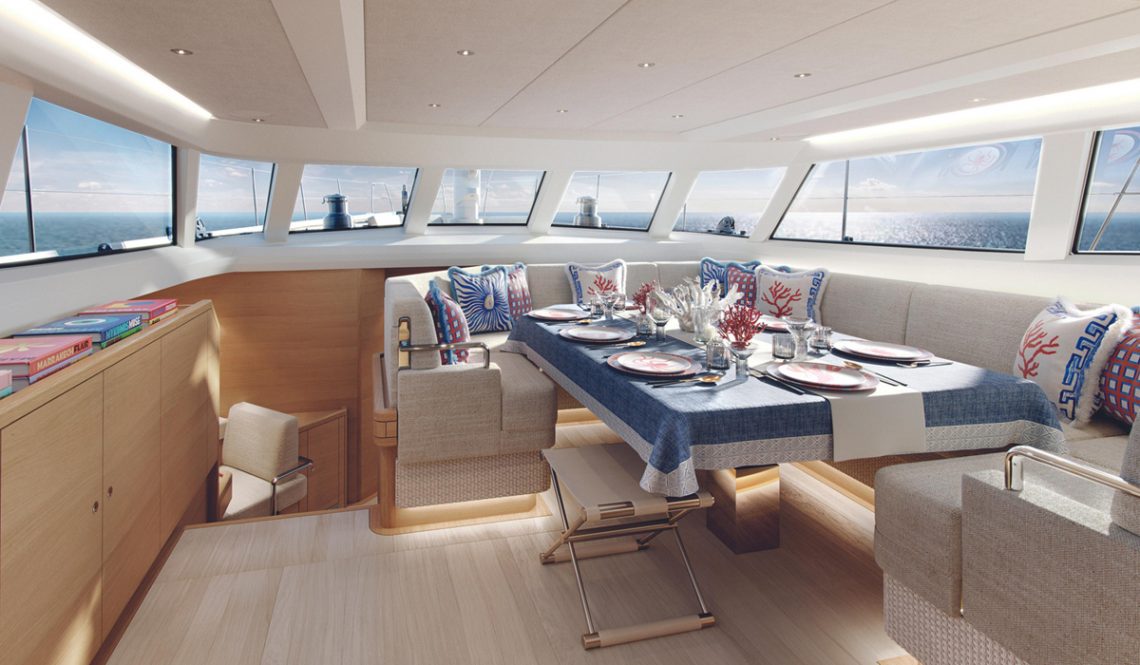
Yacht design: A sailboat is not a hotel room!
In the evolution of yacht design for cruising sailboats, the key word is comfort. Modern boats have improved dramatically in terms of ergonomics, fittings, and onboard livability compared to models of the past. Everything on board today is designed and built to make the most of every moment spent at sea.
However, the technical solutions found on a sailboat are always the result of a delicate balance between comfort, aesthetics, and seaworthiness. Sailboats are living, moving vessels that must float, sail, and handle all kinds of weather and sea conditions. That’s why—no matter how luxurious, modern, or well-equipped they become—these yachts can never truly be compared to a hotel room or a private home. And it’s often sailing newcomers who are most surprised by the small and not-so-small differences on board.
In this guide, we’ll look at the five main interior features that differ the most between a sailing yacht and a house on land.
Discover the best boat rental deals
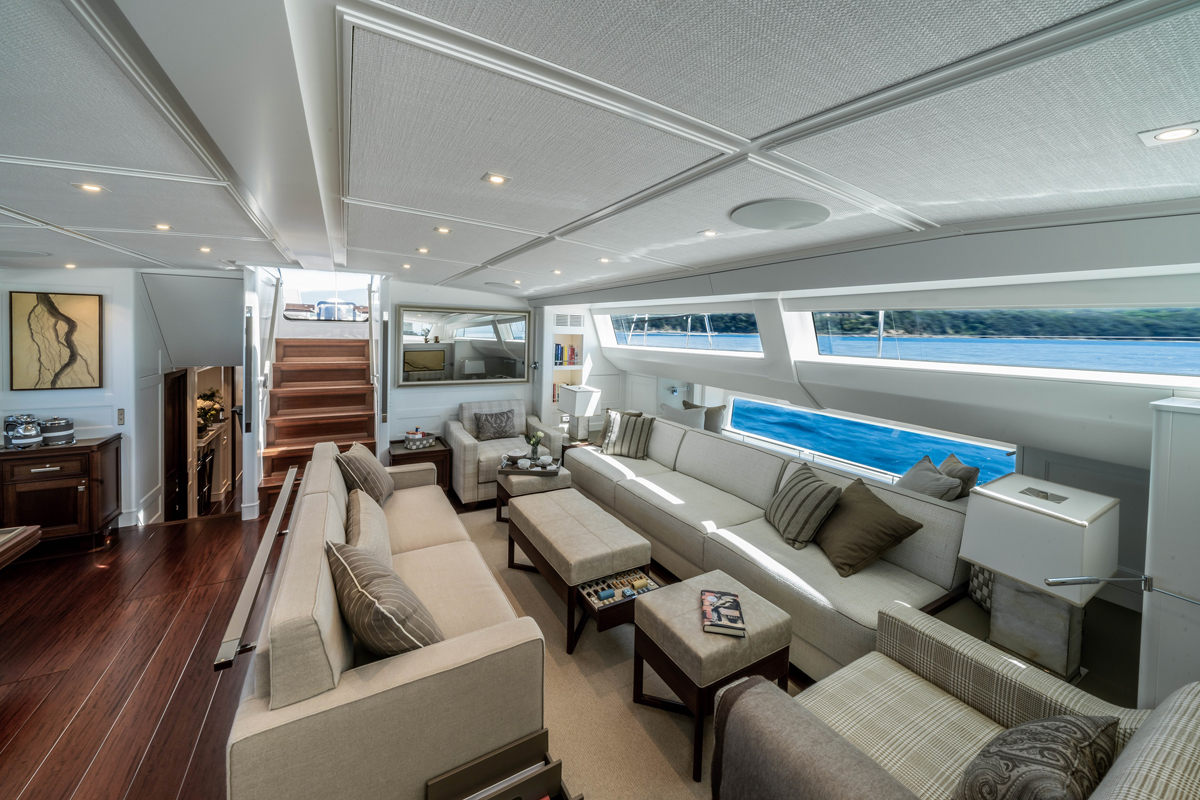
Ceiling height in the saloon and cabins
One of the most noticeable differences between the interiors of a yacht and a home is the ceiling height, known in nautical terms as the headroom. While it may seem like a minor detail at first glance, the available height has a significant impact on interior yacht design, especially in key areas like the saloon, galley, and heads (bathrooms). To create the illusion of spaciousness, yacht designers often rely on clever techniques: carefully sculpted ceilings, strategic lighting placement, and thoughtful choices of materials and finishes. With the right design approach, these details can make interiors feel taller and more open, visually expanding even the most compact spaces.
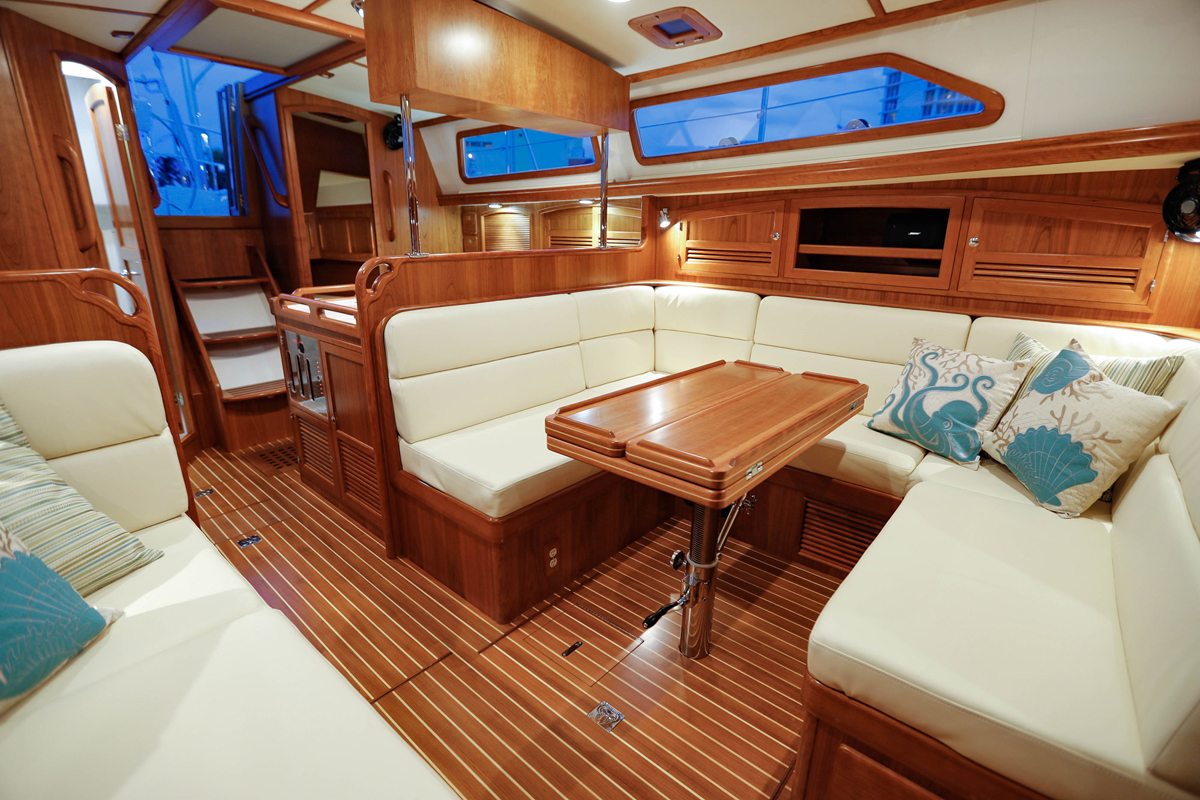
On board, forget chandeliers and bedside lamps!
Chandeliers on yachts are extremely rare for several reasons, mainly due to limited headroom. Lighting placement requires careful planning to avoid interference when moving around the cabin—especially when the boat is heeling. Yacht lights are typically designed with a low, horizontal profile to fit into tight spaces, and they are securely fixed to the ceiling to prevent swinging when the boat rolls on the waves.
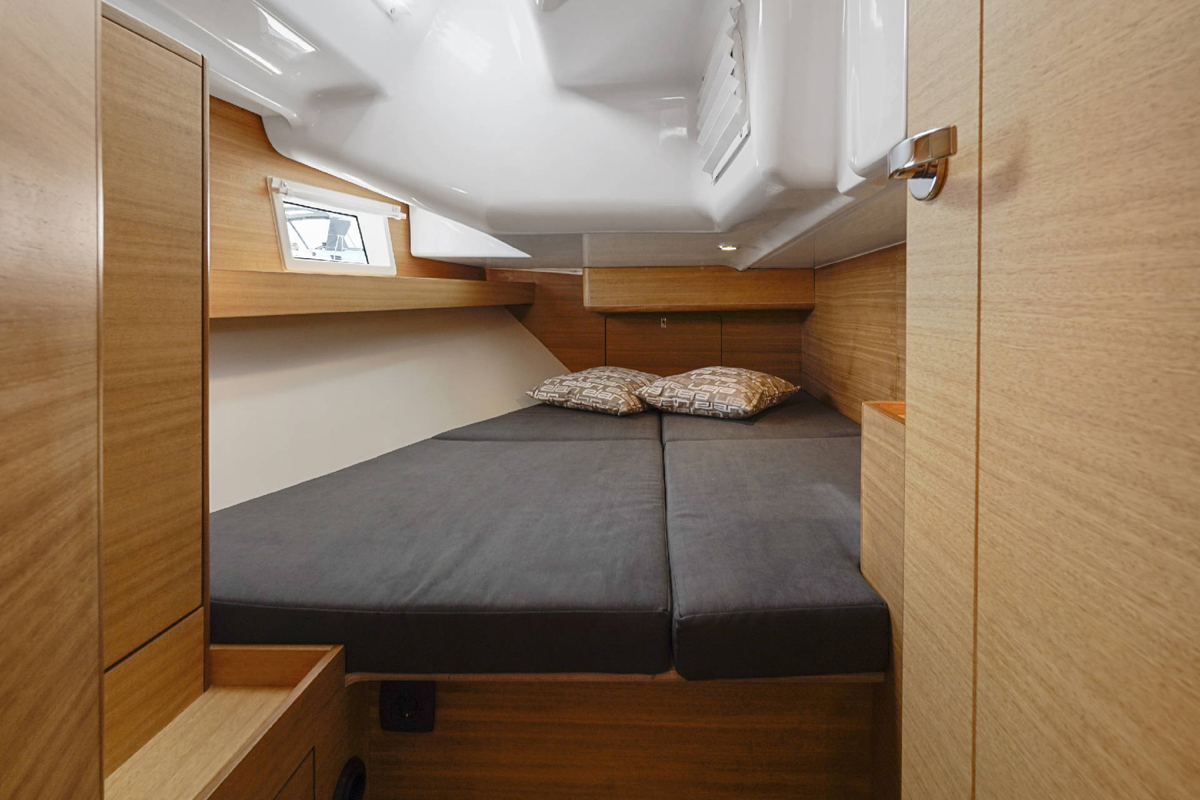
Handles and drawers: hidden and secure
Yacht furniture must include additional safety features to prevent drawers and cabinets from opening accidentally while sailing. In the past, the choice of marine handles was quite limited, but today there is a much wider range of aesthetically refined options that combine both comfort and safety. This variety allows designers to create elegant, functional interiors that meet both visual and practical needs. The most popular solutions are recessed handles and push-to-open drawers.
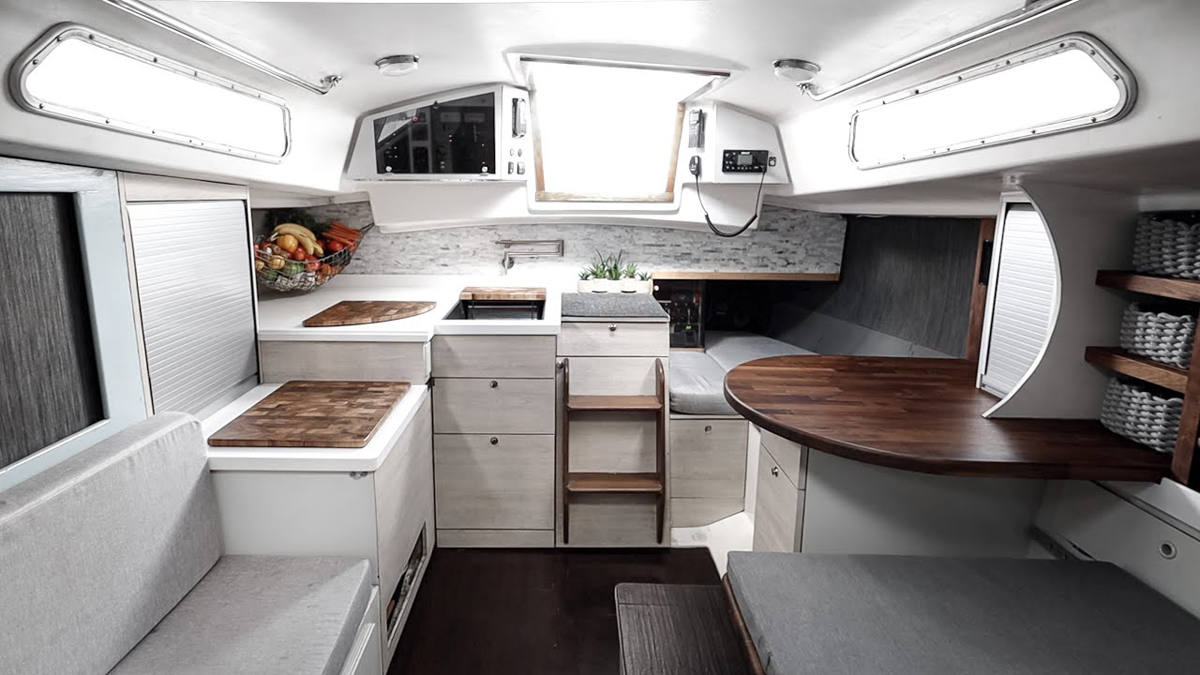
Curtains and drapes: not so practical on board
Curtains on yachts are usually fixed in place to minimize movement at sea, while traditional drapes are largely absent due to space constraints. Curtains can take up too much room and are therefore impractical. Instead, roller blinds and Venetian-style shades are far more common, as they are better suited to marine conditions. These are typically made from materials resistant to moisture, salt, and dirt, helping them maintain both their appearance and function over time.
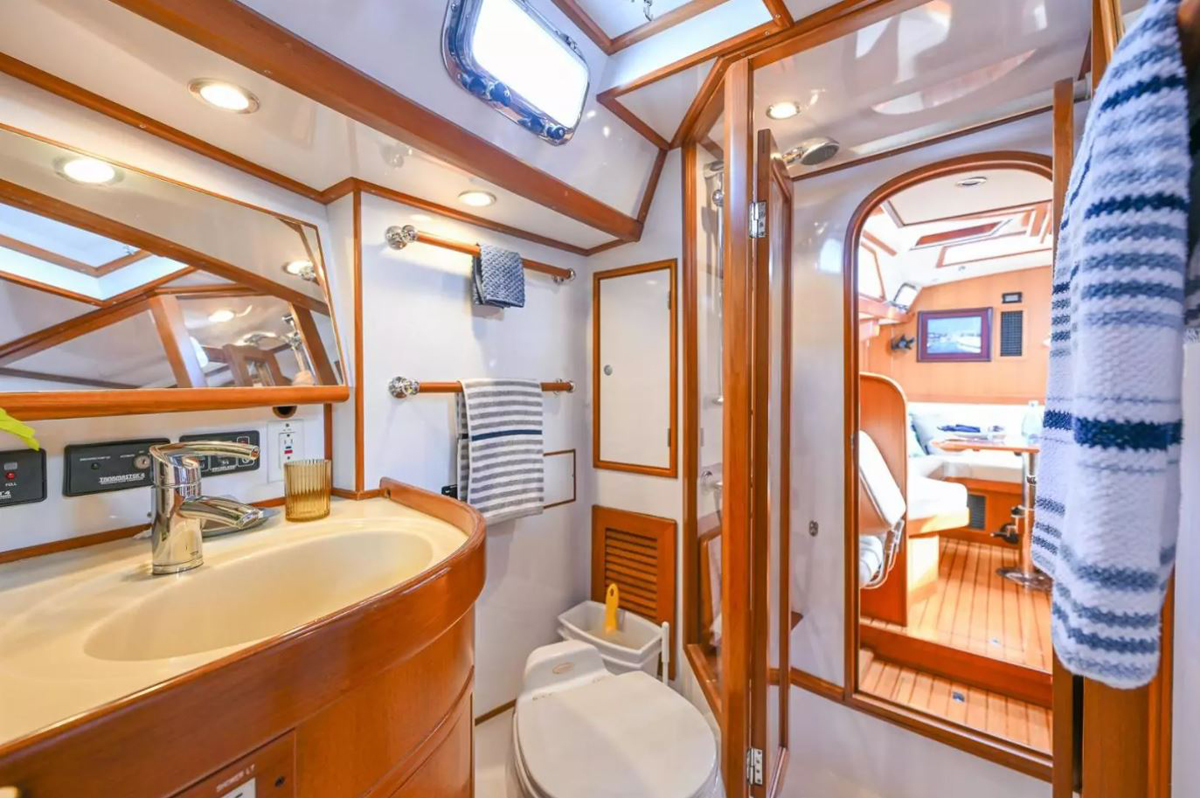
Shower space: large bathrooms are a luxury
On most yachts, shower spaces are often quite compact, with layouts that can make showering a slightly awkward experience. Some practical solutions, such as transparent or folding dividers instead of traditional glass doors, help maximize space and can be easily stowed away when not in use. However, unless you’re sailing on a yacht over 18 meters long, onboard bathrooms are rarely known for their comfort. It’s no surprise that during summer cruises, many guests prefer to shower outside on the aft platform, right after a swim in the sea.
Ultimately, the differences between a yacht’s interior and that of a home on land present challenges that designers can overcome with creativity—and sailors with a healthy sense of adaptability. After all, when you’re at sea, a few small sacrifices are more than compensated by the beauty of the nature around you.
Discover the best boat rental deals
You May Also Like

Smooth sailing: Keeping novice crew members comfortable onboard
25/09/2025
How to avoid damage, tears, and other breakages to the genoa sail
24/10/2025


